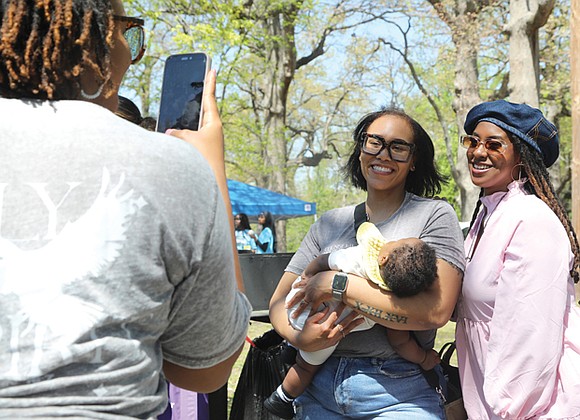The White House and Black Maternal Health Week
4/18/2024, 6 p.m.

Black Maternal Health Week was recognized this year from April 11-17 throughout the United States and by the White House.
Excerpts from the White House states:
“During Black Maternal Health Week, we recommit to ending the maternal health crisis that is taking the lives of far too many of our Nation’s mothers. Women in America are dying at a higher rate from pregnancy-related causes than women in any other developed nation. Black women face even more risk and are three times more likely to die from pregnancy-related causes than white women. That is in no small part because of a long history of systemic racism and bias. Studies show that when Black women suffer from severe injuries or pregnancy complications or simply ask for assistance, they are often dismissed or ignored in the health care settings that are supposed to care for them. People of color — including expecting mothers — also bear the brunt of environmental injustices like air and water pollution, which worsen health outcomes. Too often, Black mothers lack access to safe and secure housing, affordable transportation and affordable, healthy food. This is unjust and unacceptable.
That is why my Administration has worked to address this crisis from the very beginning. Vice President Kamala Harris came into office as a key leader on maternal health and continues to fight for improved maternal health outcomes, elevating the issue nationally and convening experts and activists to find solutions. My Administration’s first piece of historic legislation — the American Rescue Plan — gave States the option to provide a full year of postpartum coverage to women on Medicaid, increasing it from just 60 days previously. Now, 45 States, Washington, D.C. and the United States Virgin Islands provide a full year of this critical care. We also made coverage under the Affordable Care Act more affordable, saving millions of families an average of $800 per year on health insurance premiums.
My Administration also released the Blueprint for Addressing the Maternal Health Crisis, which outlines actions the Federal Government will take to combat maternal mortality and improve maternal health. To start, we created a new “Birthing-Friendly” hospital designation that highlights hospitals and health systems that offer high-quality maternal care — ensuring that expecting mothers know where to go to get the help they need. To find out which facilities are “Birthing-Friendly,” go to
NOW, THEREFORE, I, JOSEPH R. BIDEN JR., President of the United States of America, by virtue of the authority vested in me by the Constitution and the laws of the United States, do hereby proclaim April 11 through April 17, 2024, as Black Maternal Health Week. I call upon all Americans to raise awareness of the state of Black maternal health in the United States by understanding the consequences of institutional racism; recognizing the scope of this problem and the need for urgent solutions; amplifying the voices and experiences of Black women, families, and communities; and committing to building a world in which Black women do not have to fear for their safety, well-being, dignity or lives before, during and after pregnancy.







